Summer is here, which means it’s time for some water play in our preschool science activities. This week, we cooled off with a sink or float water sensory bin.
Sink or Float Science Experiment for Preschoolers
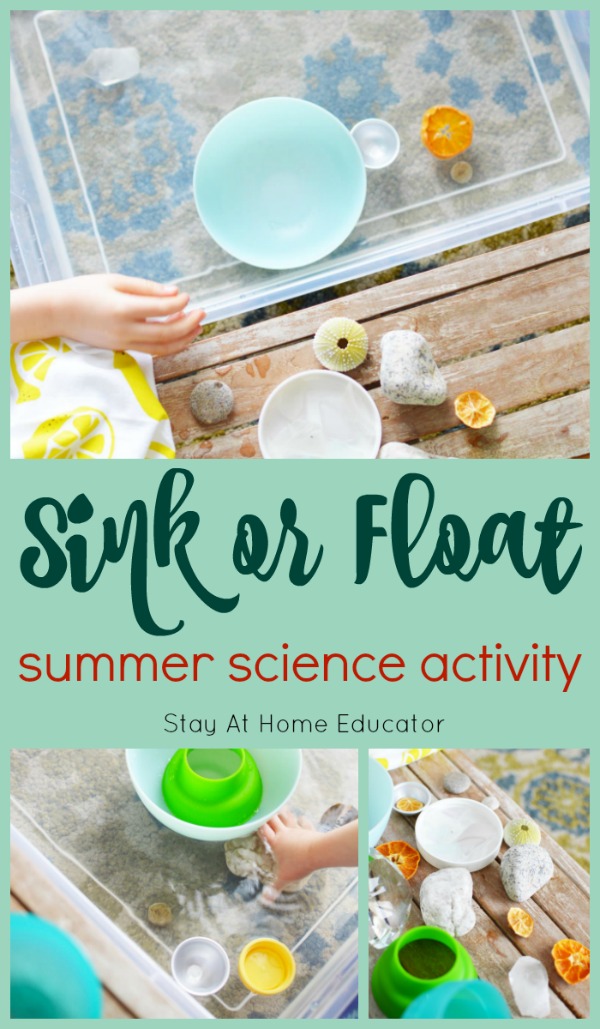
Is it just my me, or are kids drawn to water?
My baby can find an abandoned glass of water within two minutes of leaving it somewhere. It’s like he has a sixth sense for it. My little boys have gotten into a habit of filling containers of water to “mix up” and somehow they all end up in my freezer, sometimes filled with some sand or torn paper or every last one of my measuring spoons.
On walks after even the slightest rain, kids can find even the tiniest puddle. They notice the beads of sweat on your brow when you are packing them on a hike. And the bath is never so fun without a constant stream of water falling from the faucet.
They are just drawn to water. It’s almost magnetic.
Which is fine, because now that intense curiosity about water can lead into some of the most fun science activities for preschoolers.
Namely, a classic sink or float sensory bin.
FAQ About Water Sensory Bins for Preschoolers
Water tables are inherently fun and are one of the best open-ended toys for toddlers and preschoolers.
You can make them more fun by adding interesting sensory materials along with a variety of toys such as cars, animals, cups, and scoops. Basically…anything that won’t be ruined by the water can be added to a water sensory bin!
Be creative in you water table play ideas!
One of the best things about water tables is their versatility. You can have fun with so many different materials in a water table, including water beads, ice cubes, soap foam, shaving cream, beans, rice, floral pebbles, sand, dirt…the possibilities are endless! You can also add common toys like a marble run, plastic animal figurines, or thematic math counters.
Water tables are a wonderful addition to your indoor play area, too, and you can even create winter water tables indoors.
They can be filled with dry materials and used just like a sensory bin! For easy clean up and to protect the floors, place a large bedsheet, tarp, or tablecloth underneath. You can even turn a bath tub into a water bin! Just make sure what you add isn’t so small that it could go down the drain.
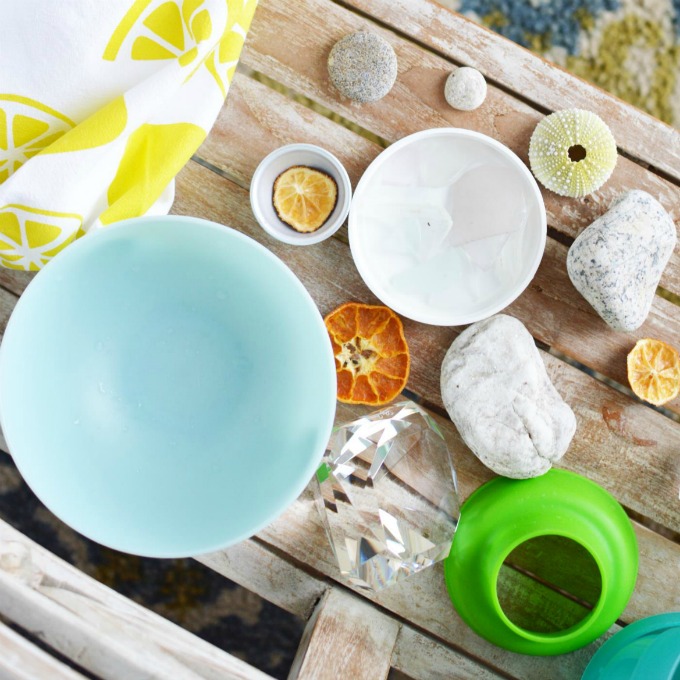
Sink or Float Preschool Science Activity
Using just common household items, this preschool science activity can be put together in a matter of minutes. It works well in a water or sensory table for multiple kids, but can also be done as easily in a smaller sensory bin.
Add it to your ocean theme in preschool and learn about ocean animals, or just use the outdoor water table to learn all about what kind of items sink and float.
Materials for the Water Sensory Bin
- Any object that sinks
- Any object that floats
- An under-the-bed storage bin or water table
Or, if you want to know exactly what I used…
- Funnel
- Various small bowls or scooping materials
- Random rocks
- Dried oranges or other potpourri materials
- Sea urchin shell
- Plastic gems (like those from my Valentine’s sensory bin)
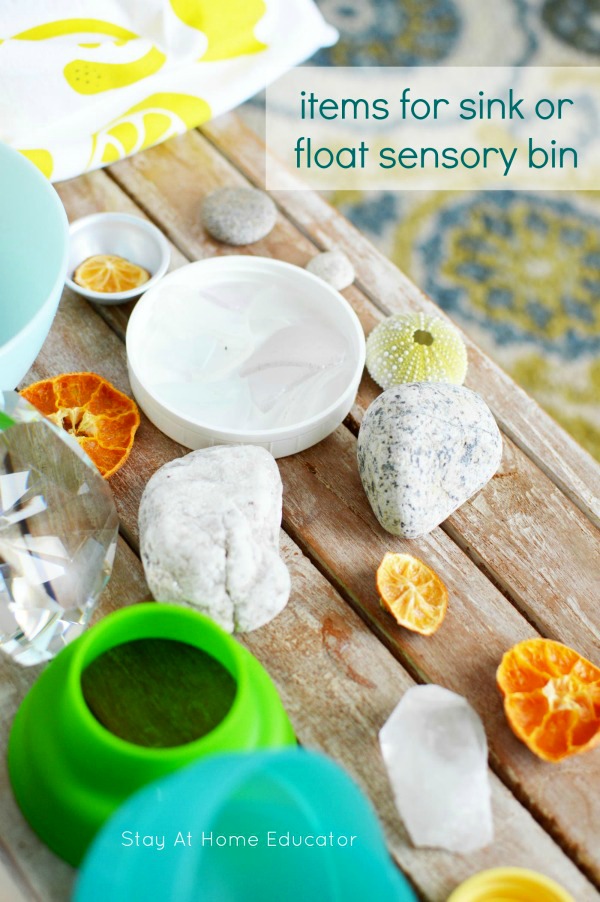
The Set-Up
Place all the sink or float materials on a tray to hold them. Fill your water bin or table with a few inches of water.
Now, just a reminder…we are working with children and water here, so please supervise your children at all times. Never leave your child alone with a water sensory bin.
Let’s answer the question of where to put the water bin. As I’m sure you can imagine there is bound to be a little bit of splashing! Unless you need that water to wash your floors after the activity, it’s best to take some preventative measures to limit the mess.
Consider the Following
We know that sometimes water play at the activity table can get a little wet. It’s true of just about all sensory table ideas. So, consider placing your water table and sensory bins in the following:
- Outside
- On the porch
- In the sunroom
- With a shower curtain under it
- In the bath tub
Any of those places will make clean-up a little easier than your carpeted living room floor.
How to Do the Preschool Science Activity
As expected, my little boys were immediately drawn to this water bin. How could they not be?
For stem activities like this one, I like to sit back and allow my boys to just play, and I completely take my teaching directions from what I observe and from what I hear them say. Kids will naturally say things like,
- “This one floats!”
- “I pushed this one down.”
- “My rock is making your bowl go down.”
- “I’ll throw this rock and it’s gonna’ splash you big, big, big!”
- “Why this not floating?”
For the record, these are exact examples of what by boys said as they played. So, my job then was to facilitate and build on their playing to teach them the science concepts (or math concepts) they were already seeing and experiencing in the water sensory bin.
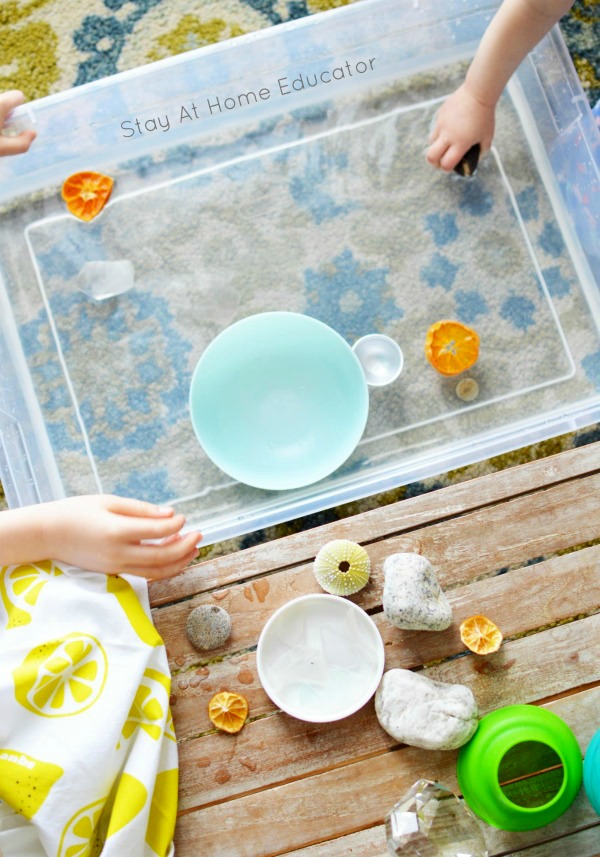
Answer All the Hows and Whys
When doing science with preschoolers, like this sink of float sensory bin, the best approach you can take is to answer all the questions your preschoolers ask. And there will be a huge amount of questions!
- Why did the bowl float but the rocks didn’t?
- How could you use the rocks to make the bowl sink?
- Can water make things sink, too?
- Why does the sea urchin sink?
- How can you use your hands to make things sink or float?
- Why does throwing the objects in the water cause splashing?
The questions could go on and on…from your preschooler and for your preschooler. I really believe that children learn the most from activities like this when they can explore at their own rate and take the lead. And the water table is a good place for that!
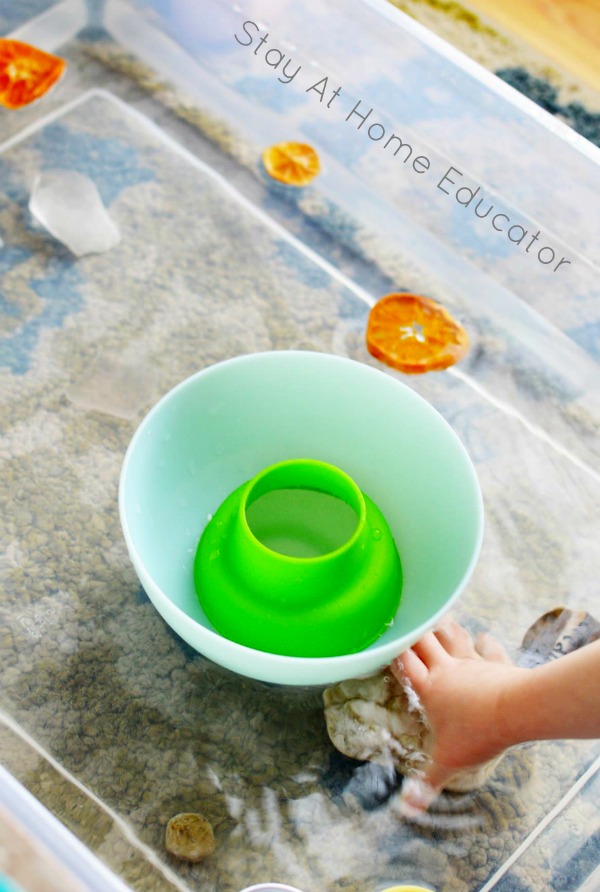
That said, you could also make the science activity more complex by offering materials that sink or float but are all equal weight. Then you’ll really talk about water displacement. And you can go into a science activity with that intention if your preschooler is interested and has enough background experience and knowledge to enjoy it.
But for my boys, it was simply fun learning with no premise or expectations other than to talk about what they were playing, which comes so naturally.
Best Science and Sensory Resource Books for Preschool
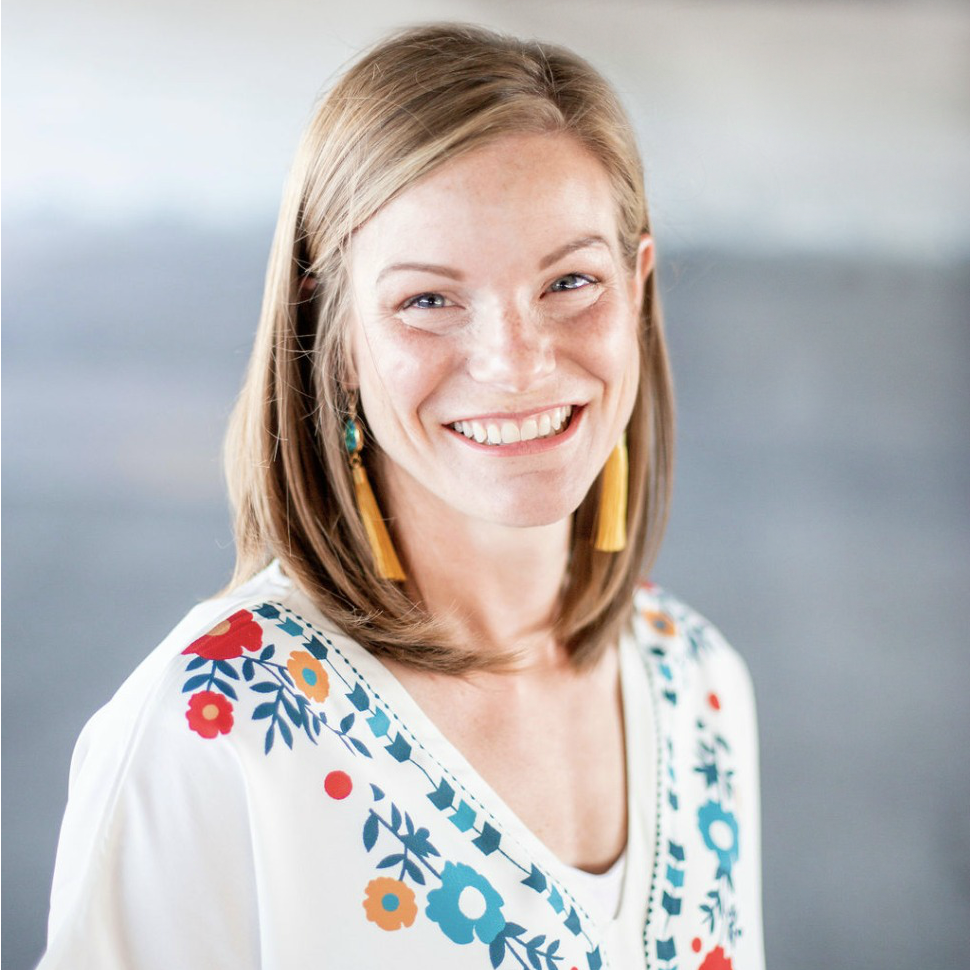
I’m Sarah, an educator turned stay-at-home-mama of five! I’m the owner and creator of Stay At Home Educator, a website about intentional teaching and purposeful learning in the early childhood years. I’ve taught a range of levels, from preschool to college and a little bit of everything in between. Right now my focus is teaching my children and running a preschool from my home. Credentials include: Bachelors in Art, Masters in Curriculum and Instruction.
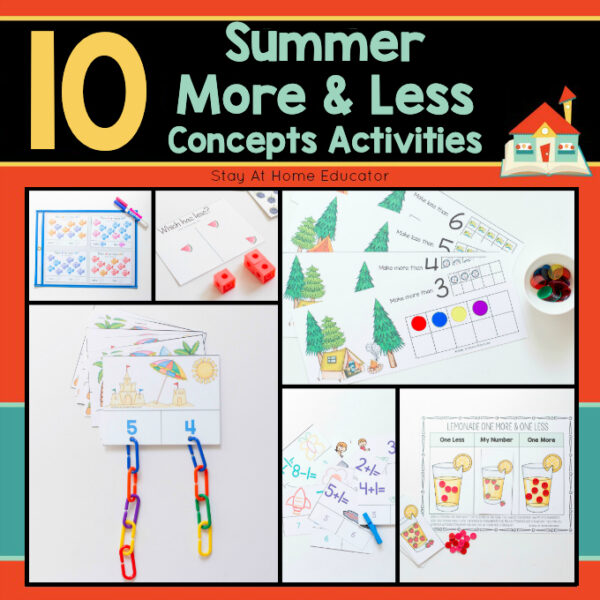
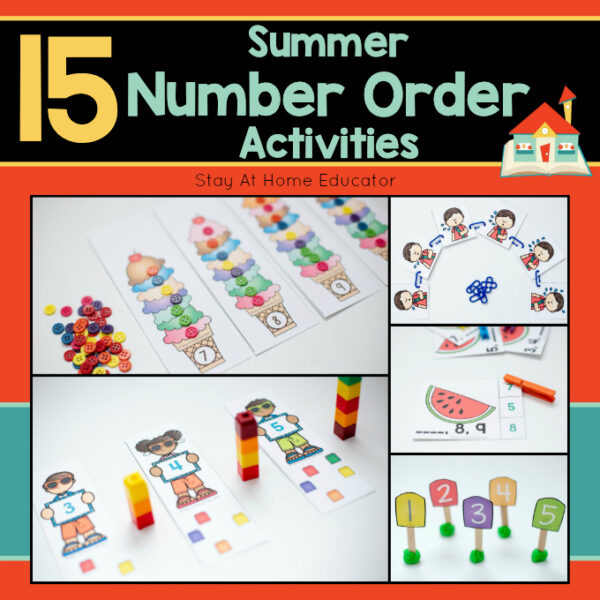
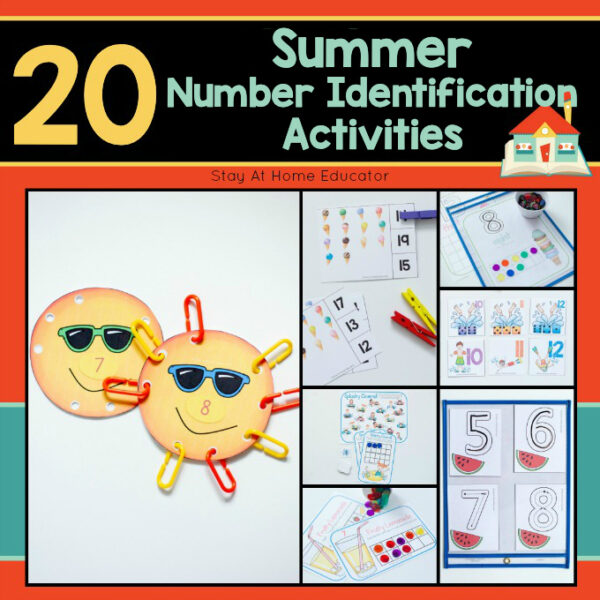

[…] is a great way to teach kids about science while having fun and getting wet to discover what will sink or float. Make predictions and test […]